Hee-Hua Hort has specialized in the propagation of plants and flowers as well as bonsai technology for the last twenty years. They are said to be the largest producer of seedling cultivation technology in China and the benchmark company in China for the asexual propagation of plants and flowers as well as bonsai technology. In this article CEO Zhou Shiliang tells us more about the company, its growth and the changes in the Chinese horticultural industry.
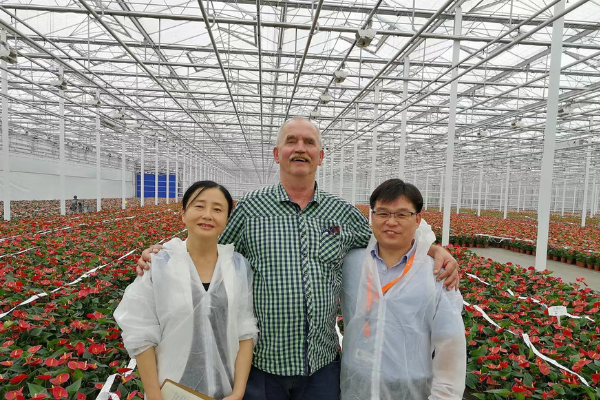
CEO Zhou Shiliang introduces the company: "The forerunner of Hee-Hua Group was established in 1999 under the name Guangzhou Huadu Xianfeng Horticulture Co., Ltd. The company mainly focused on new technologies for the asexual propagation of plants and flowers and the introduction of new varieties from abroad. They also organized promotional activities, helped standardize the industry, and provided sales services. The company currently propagates and sells plants and flowers in a dozen categories that represent several hundred varieties, such as chrysanthemum, kalanchoe, dahlia, etc. They sell their plants and flowers throughout China and export them to Korea, Malaysia, the Philippines, Hong Kong, and Macao. Their annual production value exceeds 80 million yuan [1,260,000 USD]," explains Zhou. "There have been significant changes in the Chinese plant and flower market. Before 2012, the main consumers of bonsai were companies and exhibitions. Large tree trunks and red colors were popular. However, since then, individual buyers began to dominate. They prefer unique bonsai in a wide variety of colors. Moreover, the size of bonsai grows smaller. The most popular bonsai are around 9-12 centimeters. Moreover, bonsai sell well in physical markets, while fresh-cut flowers sell better online. The outbreak of Covid-19 has kept many people at home for longer periods and the consumption of plants and flowers has increased."
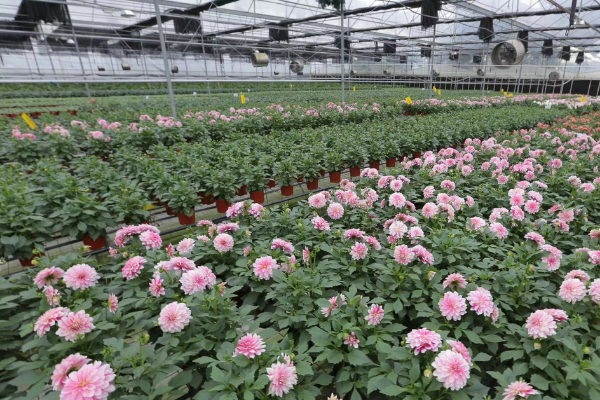
"We work closely together with international breeding companies such as Dummen Orange, US company Ball Horticultural Company, German company Selecta, Syngenta, Danish company PKM, Dutch company Dekker, and Italian company DIEM. For example, we introduced the pompon chrysanthemum cultivars from Dekker, and it proved to be very popular in the Chinese market. The pompon chrysanthemum is truly round, and none of the other flowers in the market can match this shape. Most of the other flowers are half round at best. Dekker has a rich collection to choose from, and that works well in this market. We also grow bonsai chrysanthemum."
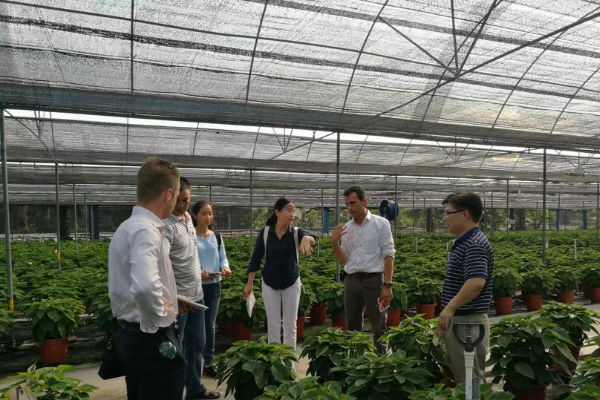
"Hee-Hua currently owns a greenhouse and bonsai greenhouse that cover a total area of 18 hectares in Kunming, Guangzhou, and Foshan. And we will begin the construction of a new mother plants area and propagation greenhouse in June. This new project will cover an area of 2.5 hectares. Moreover, next year we will start using a new greenhouse that covers an area of 6 hectares, which includes a mother plants (4 hectares) and a greenhouse in which we display a wide variety of cultivars (2 hectares). We will continue to search for new varieties that we can introduce to the Chinese market. We have turned our new plantation in Yunnan into a seedling service center. We hope to gradually move our research, development, and production from our old plantations in Guangzhou and Kunming to our new plantation in Yunnan. We hope to establish the new plantation in Yunnan as a model plantation for the exhibition of modern cultivation technologies and outstanding new cultivars as well as a promotional center for the cultivation of plants and flowers. We hope our new plantation in Yunnan will attract many more international projects with competitive advantages," says Zhou. "We already have two orders for volumes that exceed 10 million flowers. We are building Asia's largest mother plant stock and cultivation center for bonsai chrysanthemum, dahlias, poinsettia, petunia, and fuchsia."
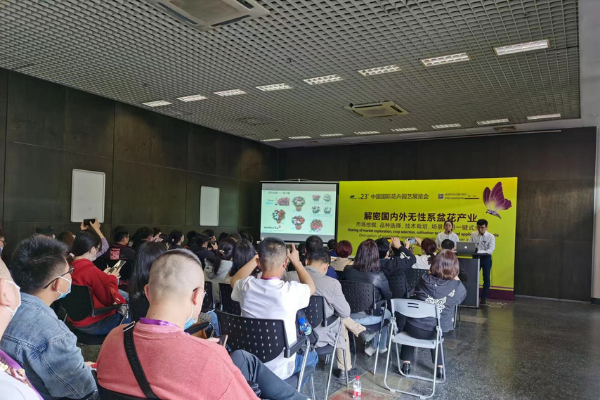
"The territory of China is huge and includes many different climate zones. Different cultivars require specific growing conditions, which means that introduced cultivars undergo a long process of localization to flourish under local conditions. We pay careful attention to the technological support of our clients. The company has a number of university graduates working on research and development. They visit clients and examine local conditions to provide the most suitable technological support. Chinese cultivators are also updating their views. They no longer focus on just supplying seedlings, but they also pay attention to technological support. Suppliers and clients can only create mutual profit if clients understand how to grow high-quality plants and flowers."
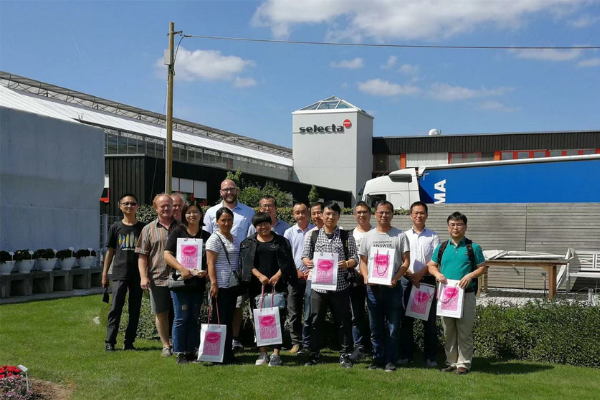
"We always participated in many foreign expositions, and foreign cultivators always invited us to join their open days, but that changed when the pandemic began. We enjoy the exchange of knowledge with our colleagues in Europe and the USA. We learn a lot from each other about the most advanced cultivation technologies and the latest cultivars. We also helped other cultivators in China travel abroad on study trips. Moreover, the company always travels the country to set up various training programs and promotional events. After the outbreak of Covid-19, however, international travel halted. We also face a complicated challenge when we introduce foreign cultivars into our mother plants area because we have to avoid the possibility of viral infections. When customs employees discover a trace of Covid-19 on a single flower, the entire shipment is lost. Fortunately, we only import female parent flowers, which limits the frequency of our imports."
For more information:
Zhou Shiliang - CEO
Yunnan Hee-Hua Hort Co., Ltd.
E-mail: shiliangzh@hee-huahort.com
Website: www.hee-huahort.com
